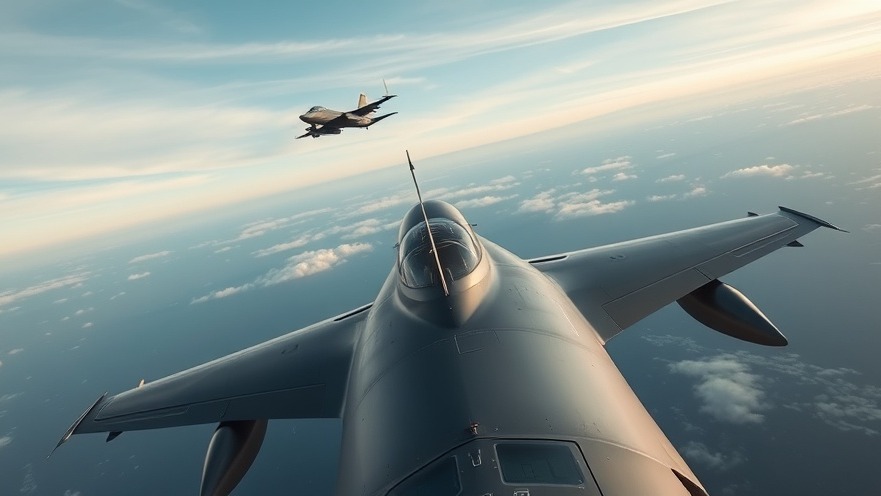
China Intercepts Canadian Air Force: A Concern for International Relations
In a significant development over the East China Sea, the Royal Canadian Air Force's CP-140 Aurora has become the focus of prominent international attention as it engages in a critical mission against North Korea. This event raises red flags about the ongoing tensions between nations and the complexities of enforcing international sanctions. The Canadian aircraft, involved in Operation NEON, aims to monitor suspicious shipping activities associated with Pyongyang's illicit trade, which defies several United Nations sanctions.
Understanding Operation NEON and Its Importance
Operation NEON represents a multinational commitment to uphold U.N. Security Council mandates. Surveillance missions like this are essential in attempting to keep North Korean trade in check and hold the regime accountable. The last round of sanctions failed to halt North Korea’s nuclear weapons program, prompting countries to renew their efforts jointly. Notably, the operations are not only strategic but also reveal international cooperation for the common goal of global security.
Chinese Interception: A Sign of Escalating Tensions
The increased aggressiveness of the Chinese military in response to the Canadian surveillance mission cannot be overlooked. Reports indicate that Chinese fighter jets have engaged in dangerous proximity maneuvers, heralding a shift towards heightened military tensions in the region. As seen in recent encounters, where a Chinese jet came alarming close to the Aurora—within just 200 feet—this pattern of interception suggests a confrontational strategy from Beijing, which has been criticized by Canadian officials as both reckless and unprofessional.
Reactions from U.S. and Canadian Officials
Canadian Defence Minister Bill Blair has publicly condemned these interceptions, labeling them as reckless and acknowledging the risks posed to the Aurora's mission. The United States echoes these concerns, decrying the recent encounters as part of a broader trend of escalating risks from Chinese military aircraft in international airspace. The Pentagon has voiced its apprehension regarding such maneuvers, emphasizing the potential for misunderstandings that could lead to greater conflict.
China's Position: Defending Its Actions
In response, Chinese officials assert that they were merely protecting their airspace from what they categorize as an intrusion by the Canadian aircraft. This claim reflects a growing narrative in Beijing, where foreign planes operating near China are increasingly viewed with suspicion. China’s Foreign Ministry has maintained that necessary actions were taken to address what they call the illegal presence of the Canadian plane, indicating a potentially dangerous stalemate in diplomatic dialogues.
The Broader Geopolitical Context
This incident occurs against a backdrop of shifting alliances in the Asia-Pacific, where China has been accused of supporting North Korea's economy amid sanctions. As Russia also plays a role in bolstering the North, with arms deals and resource exchanges, the international community is left grappling with the implications of these dynamics. The challenge remains: how do nations ensure peace while enforcing measures aimed at curtailing nuclear proliferation?
Future Implications for International Security
Looking ahead, it's clear that ongoing military operations in the region will continue to fuel tensions between China and Western nations. The stakes are incredibly high as the balance of power shifts, and nations like Canada and the U.S. find themselves at the forefront of upholding international law while confronting aggressive military responses from a regional superpower. Observers will need to remain vigilant as this scenario unfolds, as further confrontations could pose risks not only to military personnel but also to the broader stability of the region.
Conclusion: The Path Forward
As we track these developments in aerial military engagements, it's critical for leaders globally to prioritize dialogue and strategic diplomacy. The real challenge lies in navigating these complex international waters, ensuring safety and stability while pursuing the necessary sanctions against North Korea. Achieving a balance requires cooperation and a renewed commitment to peaceful conflict resolution mechanisms.
To stay updated on this evolving story and understand its implications for national and international relations, consider engaging with reputable news outlets and following global news closely.
 Add Element
Add Element  Add Row
Add Row 



Write A Comment